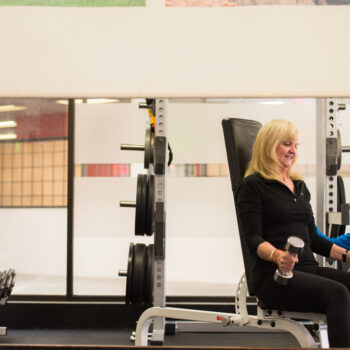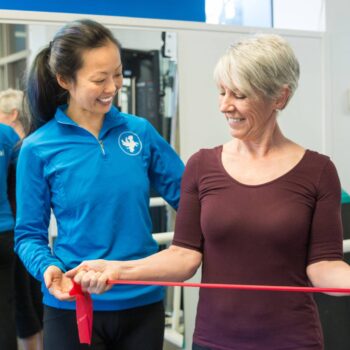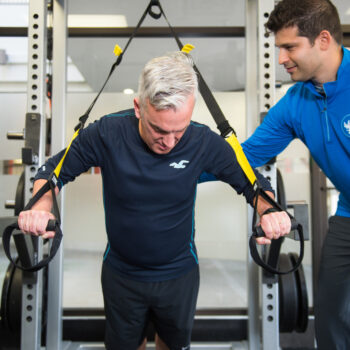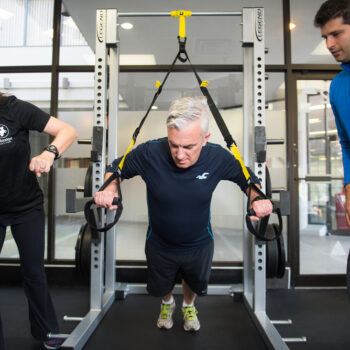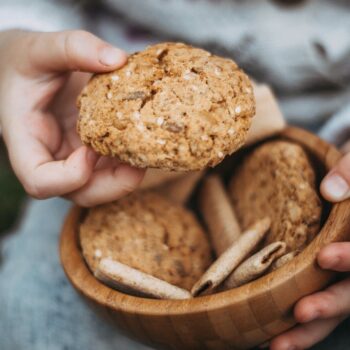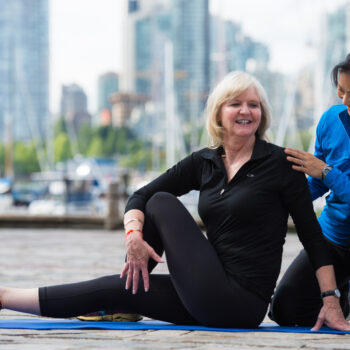Osteoporosis is characterized by a thinning or weakening of the bones, and a reduction in bone density. Loss of bone density can occur due to insufficient:
- nutrients to build bone matrix,
- estrogen to promote calcium deposition into bone, (editor’s note – testosterone also plays as significant a role in bone formation in both men and women).
- gravitational pull on the skeleton

A bone mineral density (BMD) test is the best way to determine if you are at risk. Early prevention is key, as we typically build our bone density before the age of 35. However, there is plenty that we can do to reduce bone loss at any stage of life!
Firstly, it is important to understand that maintaining bone density requires more than just taking in more calcium. A balance of protein, calcium, phosphorous, magnesium, boron, silicon, vanadium, B-complex vitamins, Vitamin K, Vitamins D3[1] and C and bioflavanoids are all required. As such, these nutrients need to be present in the diet, and also absorbed by the digestive system.
An under-functioning digestive system puts us at greater risk of osteoporosis. Too little stomach acid will result in reduced calcium absorption in the gut[2], and inadequate bile production can mean poor Vitamin D absorption. Both of these nutrients are essential for our bone health.

Stress, poor blood sugar regulation and stimulants all affect our digestion, mobilize bone protein and flush essential minerals out in the urine. Inflammation and corticosteroid use also mobilizes protein from bone, increasing our risk of osteoporosis.
Women have an increased risk of osteoporosis after menopause[3]. The receptors on bone are sensitive to the delicate balance of estrogen and progesterone that favours the deposition of calcium into bone. Estrogen reduces bone resorption (meaning that estrogen helps keep minerals in bone) and it also increases the absorption of calcium in the gut. Progesterone is associated with increased osteoblasts (cells that synthesize bone). So as the ovaries slow production of these hormones as we age, estrogen and progesterone levels drop and our bone density suffers.
Estrogen can also drop if we exercise excessively or lose a significant amount of weight. Consuming phytoestrogens (in many fruits and vegetables, but particularly alfalfa, legumes, olives, and flax) can be helpful. Phytoestrogenic herbs (such as dong quai and black cohosh) can also be taken at menopause to improve estrogen levels.
WHAT FOODS WILL HELP TO REDUCE MY RISK?

1) Ensure your meals always have supply of dark green leafy vegetables, and foods that contain a variety minerals, such as vegetables (including sea vegetables), unrefined sea salt, fish and seafood
2) Avoid stimulants such as caffeine, alcohol, sugar and refined carbohydrates
3) Avoid excess phosphorous by watching your intake of meat, dairy and carbonated drinks (specifically Colas and Dr. Pepper – not all carbonated drinks contain phosphorous).
4) Include plant-based calcium sources such as kelp, legumes, raw nuts and seeds, and green veggies
5) Ensure intake of good quality “lean” protein, including plant-based sources
WILL EXERCISE HELP OSTEOPOROSIS?

To reduce your risk, you will want to assess your digestive function and manage stress in your life. Consistent, frequent, weight-bearing exercise is recommended[4]as it triggers bone remodelling. that has been proven to improve bone density. For anyone that is currently active, but with a recent diagnosis, should work with a qualified trainer to ensure that appropriate modifications are incorporated, as well as moving towards specific exercises and activities designed to keep the skeletal system strong. Have your trainer communicate with your health care team if you are supplements, medications or have new lifestyle modifications so they can support your bone building habits. There are several activities that benefit those with osteoporosis – yoga, pilates or tai chi which are great examples of meditative, weight-bearing exercises. Don’t forget weight training!
If you are at risk for osteoporosis, you will want to consider supplementation with a good quality, natural, bone formula. Ideally, this formula would include calcium, silicon, vitamins D3, K2, and C, as well as zinc, iron, copper, manganese, and boron. Horsetail is a herb that is naturally high in silicon.
So if osteoporosis is either on your mind, or you have been diagnosed, know that there are many proactive things you can do to help keep your bones strong and your body healthy. While some medications and supplements may be recommended, it’s always advisable to ensure incorporation of healthy lifestyle factors, as a multi-faceted, holistic approach.
Questions, comments? We would love to hear from you below!
[1]Hussein R. et al. Updated Recommendations for the Diagnosis and Management of Osteoporosis: A Local Perspective. Ann Saudi Med. 2011 Mar-Apr; 31(2): 111–128.
http://dx.doi.org/10.4103%2F0256-4947.77502
[2]F. Cosman et al. Clinician’s Guide to Prevention and Treatment of Osteoporosis. Osteoporos Int. 2014; 25(10): 2359–2381.
http://dx.doi.org/10.1007%2Fs00198-014-2794-2
[3]J C Gallagher and S H Tella. Prevention and treatment of postmenopausal osteoporosis.
J Steroid Biochem Mol Biol. 2014 Jul; 142: 155–170.
doi: 10.1016/j.jsbmb.2013.09.008 http://www.ncbi.nlm.nih.gov/entrez/eutils/elink.fcgi?dbfrom=pubmed&retmode=ref&cmd=prlinks&id=24176761
[4]F. Cosman et al. Clinician’s Guide to Prevention and Treatment of Osteoporosis. Osteoporos Int. 2014; 25(10): 2359–2381.
http://dx.doi.org/10.1007%2Fs00198-014-2794-2
About the author:
 Sharon Pendlington, B.Sc., R.H.N., RYT is a Holistic Nutritionist and Yoga Instructor, and founder of Personal Nutrition. Sharon helps women frustrated by their symptoms of hormone imbalance to feel energetic and vital again. She combines her knowledge of these practices together to bring greater health to her clients.
Sharon Pendlington, B.Sc., R.H.N., RYT is a Holistic Nutritionist and Yoga Instructor, and founder of Personal Nutrition. Sharon helps women frustrated by their symptoms of hormone imbalance to feel energetic and vital again. She combines her knowledge of these practices together to bring greater health to her clients.


